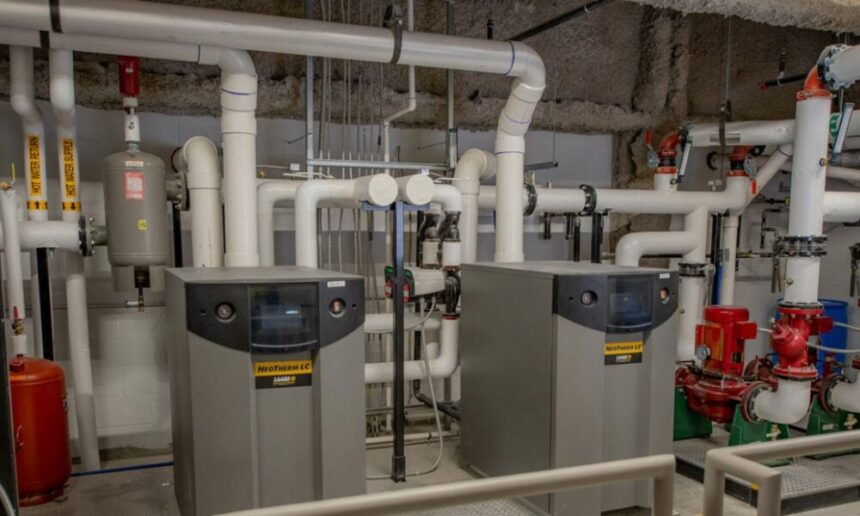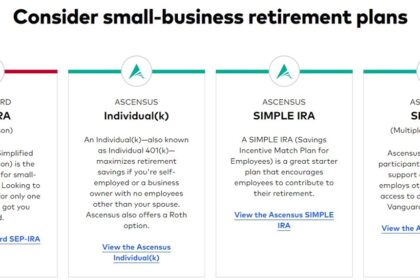Introduction:
In today’s world, where energy conservation and sustainability are becoming increasingly important, businesses are looking for ways to reduce their environmental footprint while also cutting costs. One area where companies can make a significant impact is through the use of energy-efficient boilers. Industrial boiler like the EPCB boiler is a critical component of many operations, providing the necessary heat and steam for various processes. However, not all boilers are created equal. Energy-efficient boilers offer numerous advantages that can benefit both your business and the environment. This article will explore these benefits and explain why investing in energy-efficient boiler technology is a smart choice.
Understanding Energy-Efficient Boilers
Before delving into the benefits, it’s essential to understand what makes a boiler energy-efficient. Traditional boilers can be quite wasteful, often consuming more fuel than necessary and losing a significant amount of energy in the form of heat that escapes through the flue or is not fully utilized in the process. Energy-efficient boilers, on the other hand, are designed to maximize the use of the fuel they consume. This is achieved through various technologies and design improvements, such as better insulation, advanced control systems, and the use of condensing technology, which recovers heat from exhaust gases and reuses it.
The result is a boiler that uses less fuel to produce the same amount of heat or steam, leading to lower energy consumption and reduced greenhouse gas emissions.
Financial Benefits for Your Business
One of the most compelling reasons to switch to an energy-efficient boiler is the potential for significant cost savings. Here’s how:
1. Lower Fuel Costs
Energy-efficient boilers are designed to make the most out of the fuel they consume. By reducing the amount of fuel needed to generate heat or steam, these boilers help lower your fuel costs. This is particularly important for businesses that rely heavily on their boilers, as fuel costs can represent a substantial portion of operating expenses. Over time, the savings on fuel can add up, making the initial investment in an energy-efficient boiler well worth it.
2. Reduced Maintenance Costs
Because energy-efficient boilers are often built with better materials and more advanced technologies, they tend to be more reliable and require less maintenance than older, less efficient models. This can lead to lower maintenance costs over the lifespan of the boiler. Additionally, fewer breakdowns mean less downtime for your operations, which can also translate to financial savings.
3. Increased Equipment Lifespan
Energy-efficient boilers are not only more reliable but also tend to have a longer lifespan. This is because they are designed to operate more efficiently, with less strain on the system. A longer lifespan means you won’t have to replace your boiler as frequently, which can save you money in the long run.
4. Eligibility for Incentives and Rebates
In many regions, governments and utility companies offer incentives or rebates to businesses that invest in energy-efficient technologies. By upgrading to an energy-efficient boiler, your business may be eligible for these financial benefits, further offsetting the initial cost of the boiler. These programs are designed to encourage companies to reduce their energy consumption and lower their environmental impact, making it a win-win situation for both your business and the environment.
Environmental Benefits
Beyond the financial advantages, energy-efficient boilers offer significant environmental benefits. As businesses become more aware of their environmental responsibilities, reducing carbon footprints and minimizing waste have become key priorities. Here’s how energy-efficient boilers can help:
1. Reduced Greenhouse Gas Emissions
One of the most significant environmental benefits of energy-efficient boilers is their ability to reduce greenhouse gas emissions. By using less fuel to produce the same amount of heat or steam, these boilers emit fewer pollutants, including carbon dioxide (CO2), which is a major contributor to global warming. For businesses looking to improve their environmental credentials, switching to an energy-efficient boiler is an effective way to reduce emissions and demonstrate a commitment to sustainability.
2. Lower Energy Consumption
Energy-efficient boilers are designed to minimize energy waste, making them a more sustainable choice. By consuming less fuel, they reduce the overall demand for energy resources, helping to conserve valuable natural resources and reduce the strain on energy infrastructure. This is especially important in a world where energy demand is constantly increasing, and resources are becoming scarcer.
3. Support for Corporate Sustainability Goals
Many businesses today have corporate sustainability goals that include reducing energy consumption, minimizing waste, and lowering carbon footprints. An energy-efficient boiler aligns perfectly with these goals, making it easier for companies to meet their sustainability targets. By investing in energy-efficient technology, businesses can not only achieve these goals but also enhance their reputation as environmentally responsible organizations.
4. Reduced Environmental Impact of Fuel Extraction
The extraction and processing of fossil fuels have significant environmental impacts, including habitat destruction, water pollution, and air quality degradation. By reducing fuel consumption, energy-efficient boilers help lower the demand for fossil fuels, thereby minimizing the environmental impact associated with their extraction and processing. This is an important consideration for businesses that are looking to reduce their overall environmental impact.
The Role of Technology in Energy Efficiency
Advancements in technology have played a important role in improving the energy efficiency of boilers. Some of the key technologies that contribute to energy efficiency include:
1. Condensing Technology
Condensing boilers are among the most energy-efficient models available. They work by capturing heat from the exhaust gases that would typically escape through the flue in a non-condensing boiler. This heat is then used to preheat the water entering the boiler, reducing the amount of fuel needed to achieve the desired temperature. As a result, condensing boilers can achieve efficiency ratings of over 90%, making them an excellent choice for businesses looking to maximize energy efficiency.
2. Advanced Control Systems
Modern energy-efficient boilers are equipped with advanced control systems that allow for precise monitoring and adjustment of the boiler’s operation. These systems can automatically adjust the fuel input and combustion process to optimize efficiency, ensuring that the boiler operates at peak performance at all times. Additionally, these control systems can provide valuable data on the boiler’s performance, helping businesses identify areas for further improvement and efficiency gains.
3. Improved Insulation and Heat Recovery
Another way energy-efficient boilers like the EPCB boilers reduce energy consumption is through improved insulation and heat recovery systems. Better insulation minimizes heat loss, ensuring that more of the energy generated by the boiler is used for its intended purpose. Heat recovery systems, such as economizers, capture waste heat from the boiler and use it to preheat the feedwater, further reducing the fuel required for heating.
Conclusion
In an era where energy efficiency and sustainability are more important than ever, businesses must take steps to reduce their environmental impact while also cutting costs. Energy-efficient boilers offer a practical and effective solution to achieve both of these goals. By reducing fuel consumption, lowering greenhouse gas emissions, and providing financial savings, energy-efficient boilers are a valuable investment for any business that relies on industrial heating systems. As technology continues to advance, the benefits of energy-efficient boilers will only increase, making them an essential component of any modern, environmentally-conscious business strategy.
Read More From Techbullion And Businesnewswire.com








